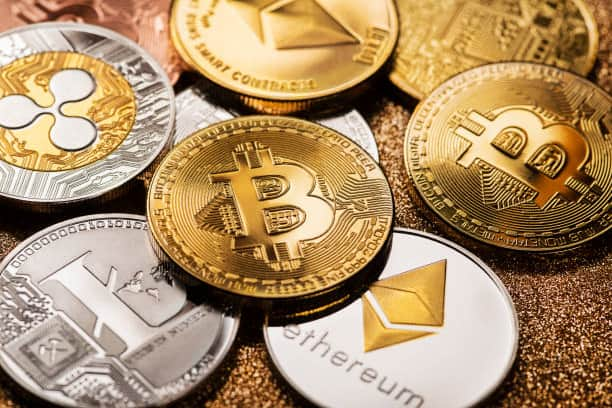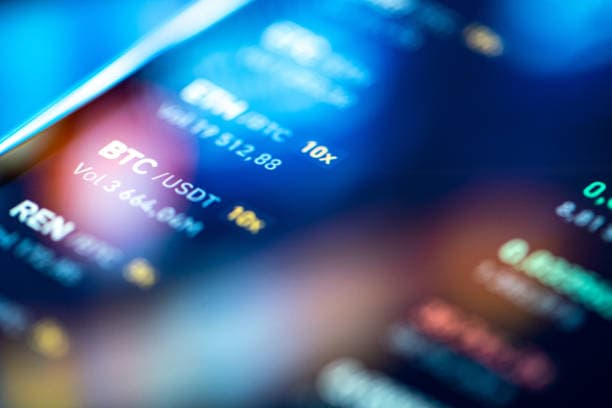As the cryptocurrency market continues to grow, decentralized exchanges (DEX) are becoming a popular choice for investors and traders. Coinchain, one of the world's leading blockchain platforms, has also attracted a lot of user attention with its decentralized exchange. However, the security of decentralized exchanges is still an open question for many people. In this article, we will delve into the features, advantages, risks and other aspects of CoinAnchor's decentralized exchange to help users gain a comprehensive understanding of the platform's security and how to avoid potential risks.

I. Basic Functions of CoinAnchor Decentralized Exchange
Decentralized exchanges (DEX) are an increasingly important part of the cryptocurrency market. As a part of its ecosystem, the CoinAnchor Decentralized Exchange offers a unique set of features to meet the trading needs of its users.
1.1 Decentralized trading experience without intermediaries
One of the biggest features of the CoinAnchor decentralized exchange is decentralization, meaning that users do not need to rely on a centralized platform as an intermediary for transactions. All transactions occur directly on the blockchain, avoiding the custodial risk and money pooling issues that can occur with traditional exchanges. This provides users with greater transparency and control.
1.2 Efficient trading engine with low costs
The efficient transaction engine used by CoinAnchor allows for faster transactions with lower fees. By optimizing blockchain technology, CoinAnchor ensures that transaction costs and latency are as low as possible on decentralized exchanges. Users can trade more smoothly and enjoy a fast and cheap trading experience.
1.3 Multi-asset backing and liquidity
The CoinAnchor decentralized exchange supports trading of a wide range of crypto assets, including but not limited to Bitcoin, Ether, BNB and other mainstream coins. This diversity provides users with more choices and reduces the risk of price fluctuations when trading. With its strong community and ecosystem, CoinAnchor ensures high liquidity on the decentralized exchange.
Second, the security of the CoinAnchor decentralized exchange
Although decentralized exchanges are somewhat more secure than traditional centralized exchanges, they still face some unique security risks. For the CoinAnchor decentralized exchange, security is one of the most important factors that users are concerned about.
2.1 Security of Smart Contracts
Transactions on the CoinChain decentralized exchange rely on smart contract technology for execution. Smart contracts can automate the execution of transactions without an intermediary. The code of smart contracts may have vulnerabilities or be exploited by malicious attackers, so their security is directly related to the security of the platform. CoinChain platforms typically undergo rigorous auditing and testing to minimize the risk of smart contract vulnerabilities.
2.2 Control of user assets
In decentralized exchanges, users are in complete control of their private keys and assets, which means that they have full control over the security of their funds. However, this also brings another problem - if a user loses their private key or fails to take proper security measures, funds may be stolen. Therefore, users need to have a certain level of security awareness to ensure that their personal accounts and private keys are protected.
2.3 Platform risks and vulnerabilities
While decentralized exchanges are inherently decentralized, reducing the risk of a single point of failure in traditional exchanges, decentralized exchanges are not completely immune to hacking. For example, CoinAnchor decentralized exchanges may face security vulnerabilities related to their on-chain applications or infrastructure. As a result, platforms need to continually strengthen their security and conduct regular vulnerability scans and fixes.

C. Advantages and Risks of CoinChain's Decentralized Exchange
3.1 Strengths: Privacy Protection and Decentralization Advantages
The most obvious advantage of decentralized exchanges is the protection of user privacy. Compared to centralized exchanges, decentralized exchanges do not require users to provide personally identifiable information, reducing the risk of user data being compromised. Decentralization means that trading is not controlled by any centralized body and users can have more autonomy.
3.2 Risk: Smart Contract Vulnerabilities and Attacks
While decentralized exchanges can mitigate some of these risks, they also have some potential risks, especially related to smart contract vulnerabilities and attacks. Hackers may attack through smart contract vulnerabilities, resulting in the loss of user assets. Therefore, platforms need to conduct ongoing security audits and ensure that the code of smart contracts is rigorously tested and verified.
3.3 Risk: user error and private key management
The risks of decentralized exchanges do not only come from technical vulnerabilities, but are also related to users' operations. Since decentralized exchanges do not provide hosting services for centralized platforms, users need to manage their private keys themselves. If users operate improperly or their private keys are compromised, assets may be lost. Therefore, users must ensure that their private keys and accounts are secure when using decentralized exchanges.
Fourth, how to protect the security of the CoinAnchor decentralized exchange
4.1 Using a hardware wallet
In order to secure funds, users are recommended to use a hardware wallet for private key management. Hardware wallets are different from software wallets in that they are devices that store private keys offline, which can effectively avoid hacker attacks and malware threats.
4.2 Regular updates and audits
Decentralized exchanges need to conduct regular platform upgrades and security audits to fix possible vulnerabilities and security risks. CoinChain platforms should invest sufficient resources in technical maintenance to ensure the stability and security of their platforms.
4.3 Increase user security awareness
In addition to the security of platform technology, the security awareness of users is equally important. Users should regularly change their account passwords, enable double authentication, and securely store their private keys and mnemonics. Only in the case of safeguarding the user's own security, the use of decentralized exchanges can be more secure and reliable.
concluding remarks
The CoinSafe Chain decentralized exchange provides an efficient, secure, and low-cost way to trade cryptocurrencies. Although decentralized exchanges have some security advantages of their own, users still need to be alert to potential risks such as smart contract vulnerabilities and private key management. Maintaining good security precautions while enjoying the convenience of decentralized exchanges will greatly reduce the risk to investors and ensure the security of transactions and the protection of assets.







